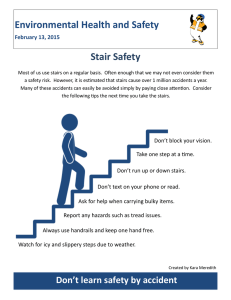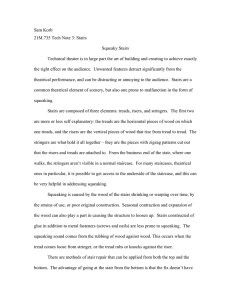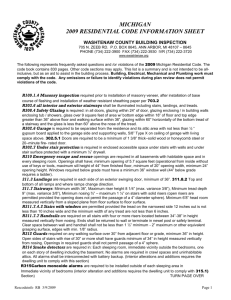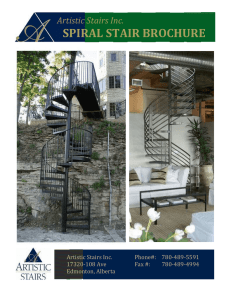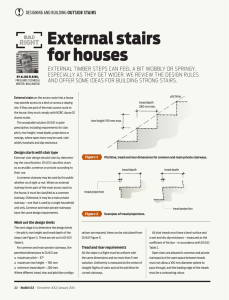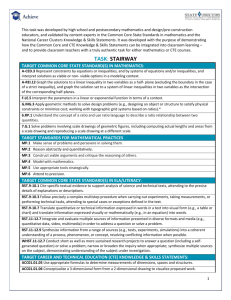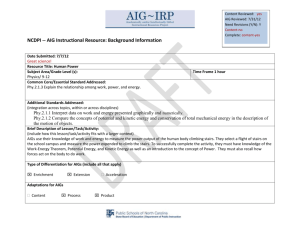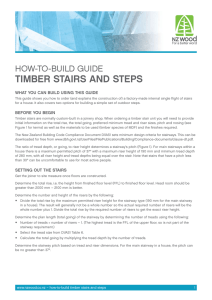Stairs
advertisement
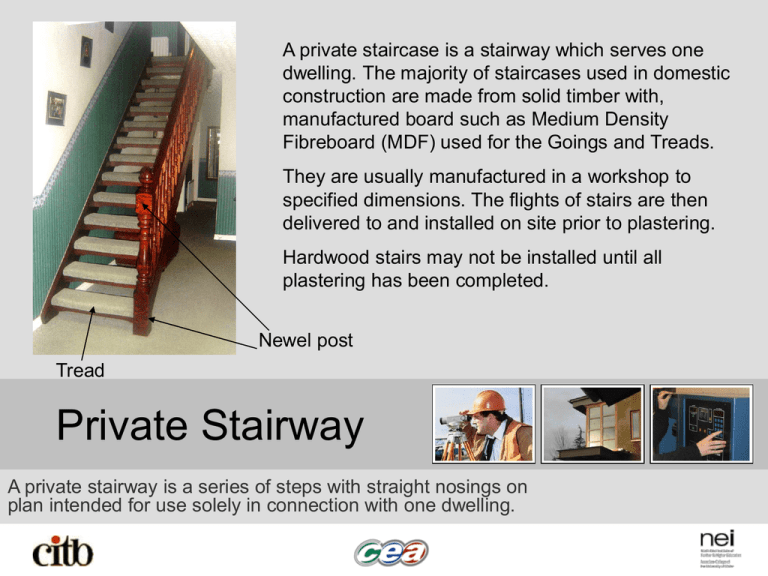
A private staircase is a stairway which serves one dwelling. The majority of staircases used in domestic construction are made from solid timber with, manufactured board such as Medium Density Fibreboard (MDF) used for the Goings and Treads. They are usually manufactured in a workshop to specified dimensions. The flights of stairs are then delivered to and installed on site prior to plastering. Hardwood stairs may not be installed until all plastering has been completed. Newel post Tread Private Stairway A private stairway is a series of steps with straight nosings on plan intended for use solely in connection with one dwelling. Stair Function • The function of a stairs is to allow easy pedestrian access from one floor level to another in safety. • Stairs must be strong enough to carry weight of people, furniture and equipment. • A private stairway is a series of steps with straight nosings on plan intended for use solely in connection with one dwelling. Private Stairway Handrail Balusters should have no opening of such a size as to permit the passage of a sphere of 100mm diameter. Stairs should be designed, arranged and installed to afford safety, adequate headroom and space for the passage of furniture. Stairs should be designed to provide ease and comfort, hardwood stairs are often a design feature and should be pleasing to look at. Baluster String Stairs should be designed to comply with the building regulations. Tread Detail Minimum Going for domestic stairs is 220mm. Maximum Rise is 220mm string and handrail. In consecutive flights of stairs, each step shall have the same rise and the same going. Handrail to be provided on both sides of stairs if width is 1.0 metres wide or more. Stair Detail Stair Terms • Stairwell The space in which the stairs and landing are housed. • Tread Upper surface of a step on which the foot is placed • Riser The vertical member between two treads • Step Rise plus tread • Nosing The exposed edge of tread usually rounded or splayed. Stair Terms • Handrail Member parallel to the string and spanning between newels or fixed to the wall. • Baluster Vertical infill members between string and handrail. • Newel Post at bottom and top of flight supporting handrail. • String Members into which the ends of treads and risers are housed and wedged. • Pitch line Line connecting the nosing of all treads in one flight. Stair Terms • Margin Space left between edge of nosing and edge of string. • Rise Vertical distance from top of one tread to top of the next. • Going Horizontal distance from face of one riser to face of the next. • Total going of flight Horizontal distance from face of first riser to face of trimmer (landing). • Total rise of flight Vertical distance from surface of floor to surface of landing.
